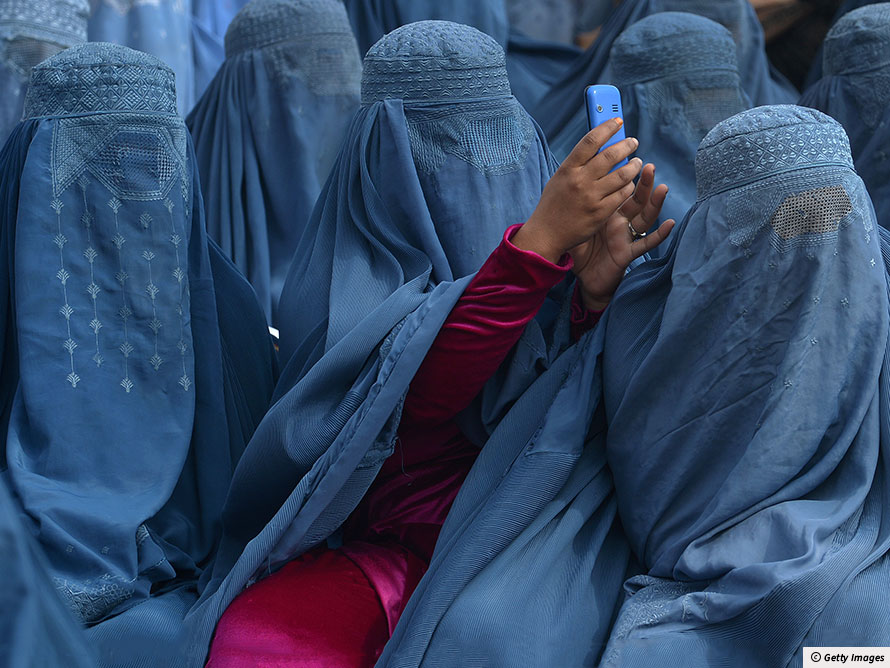Could Trump’s America go the same way? In just two years the face of Afghan society has been completely transformed. Some fear the US might be on the cusp of the same upheaval.
Taliban bans sound of a woman’s voice
 Handmaid's Tale?: In Margaret Atwood's novel, Gilead is a nation where women's bodies are policed and hidden by uniforms according to their relationship to men: the aunts, wifes, handmaids, Marthas and "unwomen".
Handmaid's Tale?: In Margaret Atwood's novel, Gilead is a nation where women's bodies are policed and hidden by uniforms according to their relationship to men: the aunts, wifes, handmaids, Marthas and "unwomen". Glossary
Kabul - The city became the capital of Afghanistan during the reign of Timur Shah Durrani, the second Afghan emir, in 1776.
Taliban - A violent fundamentalist Islamic movement that enforces sharia law and denies education to women.
Vice - Immoral or unjustifiable behaviour.
Virtue - A good moral quality.
Stringent - Very strict.
Apartheid - A system of legally-enshrined racial discrimination and oppression which existed in South Africa from 1948 until the 1990s. It denied non-white South Africans basic human rights.
Margaret Atwood - Canadian novelist whose best-known book is The Handmaid's Tale.
Evangelicals - A worldwide interdenominational Protestant movement that stresses the power of faith. In many places, it is associated with social conservatism.
Constitutional - Relating to the constitution, a document that sets out the fundamental rules according to which a country is governed, which are usually difficult to change.
Contraception - Devices, medication or behaviour that prevents pregnancy.
Theocratic - Relating to a system of government based on a single religion.
Hanafi - A school of thought in Sunni Islam, based on the writings of the Imam Abu Hanifa. It is one of the more open schools of thought.
Tajiks - A Persian-speaking Iranian ethnic group. Most Tajiks live in Afghanistan, Tajikistan and Uzbekistan.
Rural - Relating to the countryside rather than the town.
Republican - Somebody who supports the idea of a country having an elected head of state, such as a president, rather than a hereditary king or queen.
